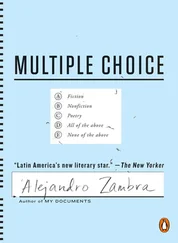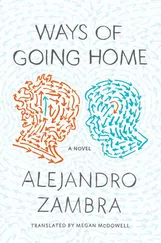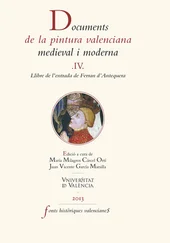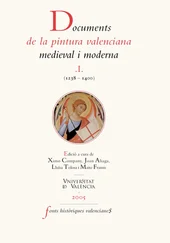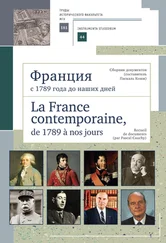Weeks later, or maybe that same day, Juan Luis Morales Rojas told us what elections were, what the president’s duties were, and what the vice president, the secretary, and the treasurer all did. In one of the first Class Council sessions, the two-hour meetings we would have on Mondays, Rojas asked us to make a list of all the problems we had, and at first we couldn’t think of anything, but then someone mentioned how fourth graders weren’t allowed in the band. The idea arose to make a list of all the names of kids who wanted to be in the band, and then to go and talk with Father Limonta. I was going to raise my hand, but I hesitated for a second. Then I realized, quite clearly, that no, I didn’t want to be in the band.
11
After a while, my mom ran into a woman who was sure she had seen me serving at Mass. “That’s impossible,” my mother replied. But then someone else told her the same thing, and she asked me about it again. I told her the person was wrong, but that I had also seen someone who looked surprisingly like me acting as altar boy. “I just have a very common face,” I told her.
When I finally did go to confession with Father Limonta, it didn’t even occur to me to tell him that I had already taken Communion, or about my erotic experience with Mauricio. Later I received my First Communion at school — which by then was my thirtieth or fortieth — and I could finally take Communion legitimately at Mass. My parents were there and they gave me presents, and I think that was when I first felt the true weight of my double life. I went on serving at Mater Purissima without my parents’ knowledge until maybe the winter of 1985, when, after a tense and sloppy Mass, the priest criticized us harshly: he told us we distracted him, that we were too shrill, that we had no rhythm. His comments hit me hard, maybe because I was precariously coming to understand that the priest was acting, that it wasn’t all enlightenment or whatever you call that sacred calling, that spiritual dimension. I decided to quit and, at that very moment, I stopped being Catholic. I suppose that’s also when my religious feeling began to be quashed. I never had, in any case, those rational meditations on the existence of God, maybe because that was when I started to believe, naively, intensely, absolutely, in literature.
12
After the attempt on Pinochet’s life, in September of ’86, Dante started asking everyone in the neighborhood if they belonged to the right or the left. Some of the neighbors reacted uncomfortably, others laughed and started walking even faster, and still others asked him what he understood of the left and the right. But he never asked us kids, only the adults.
I stayed friends with Mauricio and we still listened to Milanés at his house, but more often to Silvio Rodríguez, Violeta Parra, Inti-Illimani, and Quilapayún, and I got lessons from him and his brother about revolution and community work. It was from them that I first heard about the victims of the dictatorship, about the people who’d been arrested and disappeared, the murders, the torture. I listened to them, perplexed. Sometimes I got mad at them, and other times I fell into a certain skepticism, but I was always filled with the same feeling of impropriety, of ignorance, smallness, estrangement.
I tried to take positions, though they were, at first, erratic and fleeting, a bit like Leonard Zelig: what I wanted was to fit in, to belong, and if Mauricio and his brother were on the left, I wanted to be too, in the same way I wanted to be on the right at home, even though my parents weren’t really right-wing; it was more that politics were never mentioned in my house, except when my mother complained about how hard it had been to get milk for my sister during Salvador Allende’s government.
I figured out that keeping quiet was a very effective way to fit in. I figured out, or began to figure out, that the news obscured reality, and that I was part of a conformist crowd neutralized by television. My idea of suffering became the image of a boy who lived in fear of his parents being murdered, or who grew up without knowing them except through a few black-and-white photographs. Even though I did everything I could to distance myself from my parents, the idea of losing them was, for me, the most devastating thing imaginable.
13
“It’s not about remembering / the First Communion / but rather the last,” says a poem by Claudio Giaconi. I’m wrapping up now.
14
At the start of 1987 the pope came to Chile, and I felt that old religious fervor coming back, but it didn’t last very long. At the end of that same year, just days after I had turned twelve, I found out that my parents were going to send me to a different school. I hadn’t exactly become a virtuosic guitar player, but I had my moment of musical glory when I won my Catholic school’s talent show by singing “ El baile de los que sobran ” by Los Prisioneros. The boy who got second place sang, in a perfect and melodious voice, “ Detenedla ya ” by Emmanuel. I have no idea how I beat him. My voice was starting to change, I had trouble hitting the right notes. And I didn’t know what I was singing. I didn’t know what I was singing.
In March of 1988 I entered the National Institute. And that’s when, at the same time, democracy and adolescence arrived. The adolescence was real. The democracy wasn’t.
In 1994 I began studying literature at the University of Chile. There was a shiny black computer in my house. Every once in a while I used it to write my papers, or I typed poems and printed them out. I always erased the files afterward; I didn’t want to leave any records.
***
At the end of 1997 I was living in a boardinghouse across from the National Stadium, and I had completely fallen out with my father. I wouldn’t take his money, but I did accept a used laptop that he insisted on giving me. And even if he hadn’t insisted, I still would have accepted it. It was fitting that my favorite album then was called OK Computer . I wrote while listening to “No Surprises” a thousand times; I wrote about anything, but not about my family, because back then I pretended I didn’t have a family. No family, no house, no past. Sometimes I also listened to “I Am a Rock” by Simon and Garfunkel, and that was also fitting, because that’s what I lived, that’s what I thought, seriously, solemnly: “I have my books / and my poetry to protect me.”
In 1999 the laptop my father had given me — a black IBM, with a little red ball in the middle of the keyboard that served as a mouse (which the techies called the clitoris) — broke down definitively. I bought, with many monthly payments, an immense Olidata. By then I was living at Vicuña Mackenna 58, in the basement apartment of a big old building. I was working as a night phone operator, and, in the afternoons, I wrote and looked out the window at the legs and shoes of people walking by on Eulogia Sánchez. That winter, because I didn’t have a heater or a hot-water bottle, I spent several nights sleeping with my arms around the computer.
***
In 2005 they outlawed the use of treated kite strings, due to the number of accidents they caused, and to the grisly case of a motorcyclist who was killed by one some years before. But by then my father had already moved on to fly fishing.
In August of 2008, my grandmother died. A few days ago, my mother and I went through her stories, now transferred to the computer. They were set in Comic Sans MS font, 12 point, double-spaced. I knew the beginning of “Ninette” by heart: “This is a story about a family whose noble lineage made them more high-and-mighty every day, except for the daughter, an only child, who stood out for being good and kind.”
Today is July 5, 2013. My mother no longer has posters hanging in the conjugal bedroom, but she still follows Paul Simon. This morning, over the phone, we talked about him, about what his life must be like now, and whether he has found happiness with Edie Brickell. I assured her he has, because I’m pretty sure I’d be happy with Edie Brickell too.
Читать дальше

